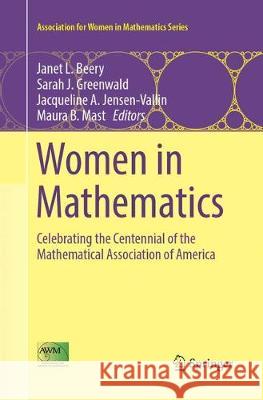Women in Mathematics: Celebrating the Centennial of the Mathematical Association of America » książka
topmenu
Women in Mathematics: Celebrating the Centennial of the Mathematical Association of America
ISBN-13: 9783319883038 / Angielski / Miękka / 2018 / 405 str.
Women in Mathematics: Celebrating the Centennial of the Mathematical Association of America
ISBN-13: 9783319883038 / Angielski / Miękka / 2018 / 405 str.
cena 326,93 zł
(netto: 311,36 VAT: 5%)
Najniższa cena z 30 dni: 325,42 zł
(netto: 311,36 VAT: 5%)
Najniższa cena z 30 dni: 325,42 zł
Termin realizacji zamówienia:
ok. 20 dni roboczych.
ok. 20 dni roboczych.
Darmowa dostawa!
Kategorie:
Kategorie BISAC:
Wydawca:
Springer
Seria wydawnicza:
Język:
Angielski
ISBN-13:
9783319883038
Rok wydania:
2018
Wydanie:
Softcover Repri
Ilość stron:
405
Oprawa:
Miękka
Wolumenów:
01











